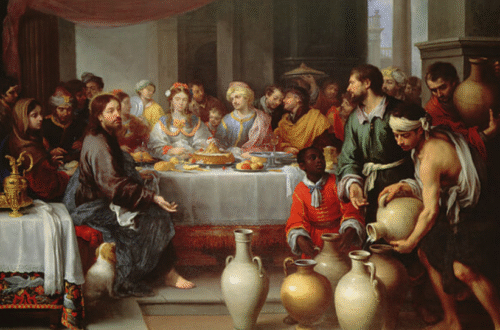Today is Maundy Thursday, also known as Holy Thursday. The name is thought to be a Middle English derivation taken from a Latin anthem sung in Roman Catholic churches on that day: “Mandatum novum do vobis” (“a new commandment I give to you;” John 13:34). For today’s notes, we are reviewing John 13:20-36 (ESV):
20 Truly, truly, I say to you, whoever receives the one I send receives me, and whoever receives me receives the one who sent me.”
21 After saying these things, Jesus was troubled in his spirit, and testified, “Truly, truly, I say to you, one of you will betray me.” 22 The disciples looked at one another, uncertain of whom he spoke. 23 One of his disciples, whom Jesus loved, was reclining at table at Jesus’ side, 24 so Simon Peter motioned to him to ask Jesus of whom he was speaking. 25 So that disciple, leaning back against Jesus, said to him, “Lord, who is it?” 26 Jesus answered, “It is he to whom I will give this morsel of bread when I have dipped it.” So when he had dipped the morsel, he gave it to Judas, the son of Simon Iscariot. 27 Then after he had taken the morsel, Satan entered into him. Jesus said to him, “What you are going to do, do quickly.” 28 Now no one at the table knew why he said this to him. 29 Some thought that, because Judas had the moneybag, Jesus was telling him, “Buy what we need for the feast,” or that he should give something to the poor. 30 So, after receiving the morsel of bread, he immediately went out. And it was night.
31 When he had gone out, Jesus said, “Now is the Son of Man glorified, and God is glorified in him. 32 If God is glorified in him, God will also glorify him in himself, and glorify him at once. 33 Little children, yet a little while I am with you. You will seek me, and just as I said to the Jews, so now I also say to you, ‘Where I am going you cannot come.’ 34 A new commandment I give to you, that you love one another: just as I have loved you, you also are to love one another. 35 By this all people will know that you are my disciples, if you have love for one another.”
I like the idea of having a meal, or as referenced in this scripture, I like the idea of a feast. Following the traditions of Jesus, when he fed the thousands, everyone left with a full stomach. [Mark 6:42; Mark 8:8] Much in the way that we often do when we celebrate Thanksgiving, Christmas, and many other holidays. We leave stuffed! We leave full! Therefore, when Jesus sat down to eat his last meal with his disciples, I am sure for the most part they felt like it was a feast, or a feast full of celebration. Little did they know that afterward, the events that took place were much less to celebrate.
My wife, Pamela, gave me an idea the other day about Judas Iscariot and even Peter, who would later deny Jesus. Both of these men sat down and ate this meal. Peter, thinking that he would even die for Jesus would later discover his human weakness and deny Jesus. Judas, however, was different. His betrayal was premeditated. When he sat down to partake of this meal, he knew quite well what he was going to do.
Therefore, we know what Jesus said: “What you are going to do, do quickly.”
What we do not know is what Judas said. Did he say, “I am sorry, Jesus, but I am not feeling very well this evening, and so I will not be joining you for dinner?” One would think that if they were going to betray the son of God and Savior of the world, they would not be able to sit down and eat a meal that he provided. No. We know that Judas was there. And Judas ate, and likely he ate until he was full and satisfied.
Of course, we cannot be too critical of these men because when it came time for Jesus to be arrested and put on trial, all of his followers fled. But this was a feast and a last meal, and Jesus left them with some final instructions (John 13:34-35, NKJV):
34 A new commandment I give to you, that you love one another; as I have loved you, that you also love one another. 35 By this all will know that you are My disciples, if you have love for one another.”
During this Holy Week, we are given many opportunities to focus on these events. From Maundy Thursday to the Last Supper, the washing of feet, the prayers in the garden, and the arrest and trial of Jesus. Each one of these events could provide a whole worship service experience. But of all of these, the most important element from all these events is love.
If you have love for one another.
That is what Christ wanted to emphasize. That is what is needed inside the church today. Inside the fellowship of believers must be love. As we reflect on this passage from John 13, we are reminded of both the deep love of Jesus and the painful reality of His coming betrayal. This moment at the table is intimate, emotional, and powerful. Jesus not only reveals His knowledge of the events to come but also demonstrates His heart of compassion and service, even toward those who would turn against Him. Maundy Thursday calls us to remember Christ’s commandment to love one another as He has loved us — sacrificially, humbly, and completely. It is a time to examine our own hearts, to receive His love, and to extend that love to others.



